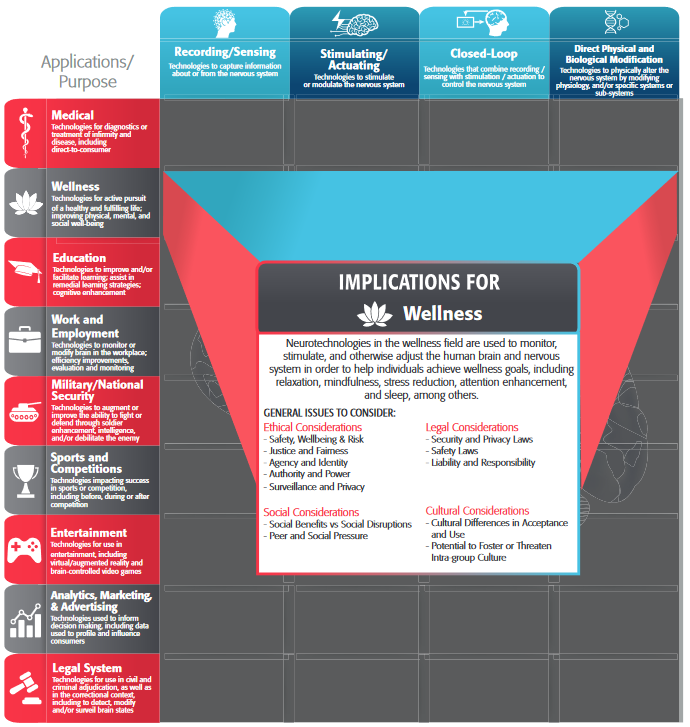In partnership with IEEE EMBS. Over 60,000 people in the United States undergo anesthesia every day which makes Dr. Emery Brown’s research on the effects of anesthesia on the brain pertinent and relevant in today’s world. Not only is Dr. Brown a Professor of Computational Neuroscience and Medical Engineering at MIT, Professor of Anesthesiology at Massachusetts General Hospital and at …
Q&A with Dr. Sri Sarma, Assistant Professor of Biomedical Engineering at Johns Hopkins University in the Institute for Computational Medicine
In partnership with IEEE EMBS. When it comes to math, Dr. Sri Sarma is a brainiac, quite literally. As the Assistant Professor of Biomedical Engineering at Johns Hopkins University in the Institute for Computational Medicine, Dr. Sarma uses her electrical engineering and control theorist background to mathematically model the human brain. In her research, Dr. Sarma has been able to …
Q&A with Dr. Eric Perreault, Chair of the Biomedical Engineering Department at Northwestern University and Professor of Physical Medicine and Rehabilitation
Welcome to the IEEE Brain Podcast Series, an IEEE Future Directions Digital Studio Production. Our first guest is Dr. Eric Perreault, Chair of the Biomedical Engineering Department at Northwestern University and Professor of Physical Medicine and Rehabilitation. Dr. Perreault works tirelessly to understand the muscle mechanics of the upper extremities, particularly the arm, following neural motor injuries due to a …
Ethical Issues in Neural Technologies
Message from the Editor: A Year in Review
OPINION
R. Chavarriaga
As we enter a new year, it is a good time to look back at the activities of the IEEE Brain Initiative during the past 12 months. Our community has been extremely engaged on the advancement of neurotechnologies.
Brain Machine Interfaces, Artificial Intelligence and Neurorights
RESEARCH
M. Ienca
Progress in neurotechnology is critical to improve our understanding of the human brain and improve the delivery of neurorehabilitation and mental health services at the global level. We are now entering a new phase of neurotechnology development characterized by higher and more systematic public funding, diversified private sector investment, and increased availability of non-clinical neurodevices.
Could a Man Mistake a Hat for His Wife?
RESEARCH
C. Guger, G. Schalk, C. Kapeller
In 1985, Dr. Oliver Sacks published “The Man Who Mistook His Wife for a Hat,” which included the case of a man with visual agnosia who had trouble identifying faces. This case made many people think about what a remarkable challenge our brain routinely solves every day.
Call for Participation: IEEE Brain Data Bank Competition – Boston
The IEEE Brain Initiative is sponsoring several challenges and competitions in 2017 to explore various brain/neuro datasets. The first IEEE Brain Data Bank (BDB) Challenge was held in June at St. Petersburg, as part of the IEEE SPCN 2017 Symposium. Another challenge was held in Glasgow, Scotland, October 31, during the IEEE SENSORS Conference. You are cordially invited to participate in the …
2017 IEEE Brain Initiative Workshop
IEEE Brain Initiative Workshop on Advanced NeuroTechnologies for BRAIN Initiatives (ANTBI) November 9-10, 2017 – Washington DC, USA See Final Agenda Register Now About The IEEE Brain Initiative Workshop will highlight the development of novel technological innovations, including engineered neuro-materials based implants, opto-genetics, to treat and monitor, traumatic brain injury, cognitive brain impairments, stroke and spinal cord injury etc. We …
Are We There Yet? Brain-Machine Interfaces to Lower-limb Powered Exoskeletons
RESEARCH
J.L. Contreras-Vidal, Y. He, A. Kilicarslan, J.M. Azorín
Trauma to neural systems such as stroke and spinal cord injury (SCI) could irreversibly affect one’s ability to walk. Ambulation and rehabilitation after injuries has long been a research focus with great significance for patients to improve their quality of life. With recent advances in robotic technologies, lower-limb powered exoskeletons have emerged as an assistive and rehabilitative tool for disabled individuals to walk again.


